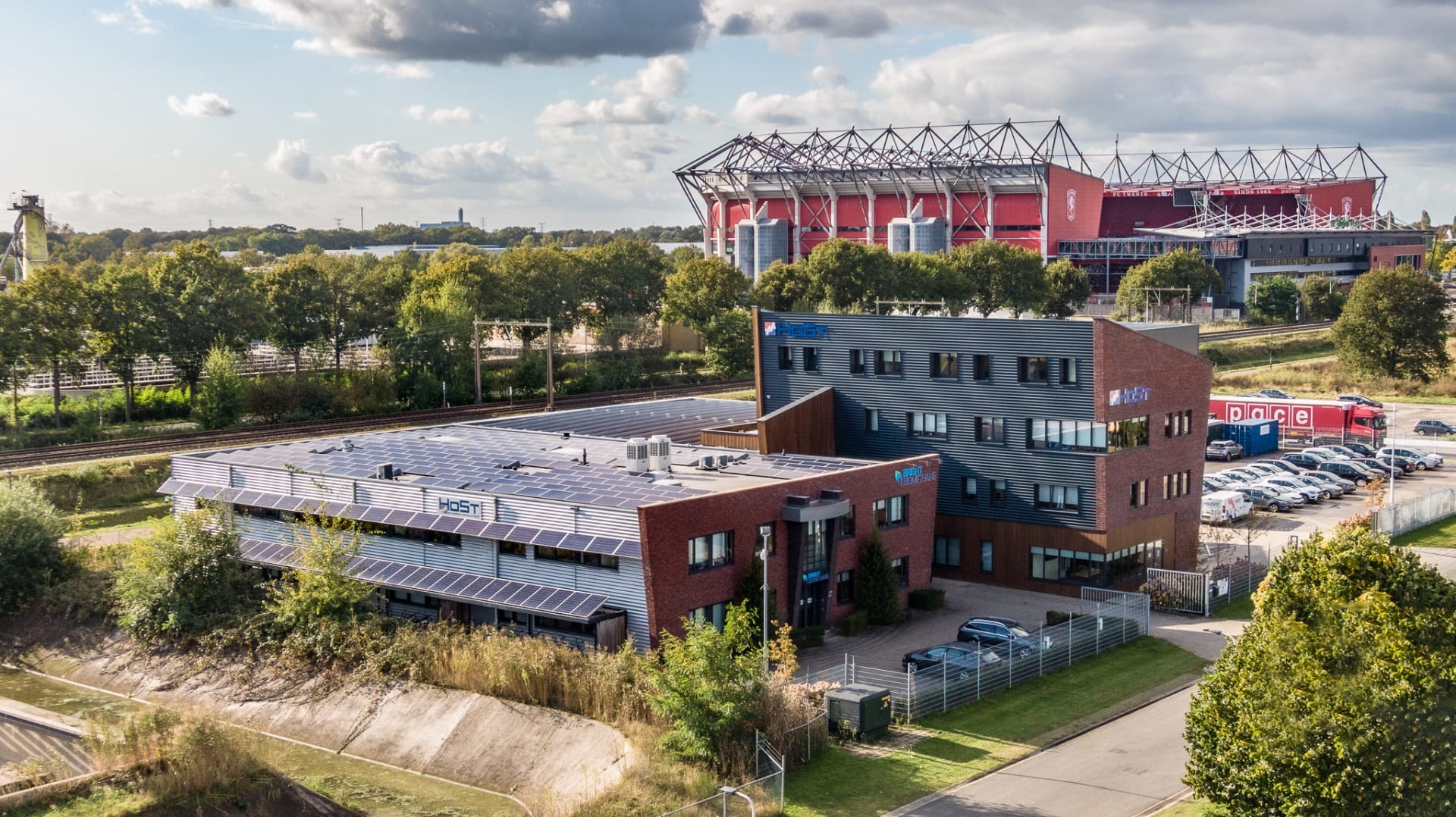For the R&D Biogas engineering department we are looking for interns! The following internships / graduation assignments are available. Apply using the apply button and select the (graduation) internship you are interested in.
The internships on this page are:
1 Development of Food waste pretreatment systems;
2 Development of straw pretreatment systems;
3 Digestate after treatment.
1 Development of Food waste pretreatment systems
Suitable for BSc or MSc in Chemical Engineering / Mechanical Engineering / Sustainable Energy
HoSt Biogas builds aerobic digesting installation where biogas can be produced from a wide range of feedstocks. The biogas can be upgraded to an equivalent of natural gas. Some feedstocks can be directly fed to the digesters, but in practice often this is not the case. Contaminants are present, particles are too big etc. One of those feedstocks is “foodwaste”, which is pretty much anything that could be found in a supermarket or restaurant but did not get sold. So scraps, material past date etc. This waste often also still includes the packaging.
HoSt Biogas wants to utilize the waste to generate sustainable biogas out of it to reduce the carbon footprint. Due to this it is required to extend the HoSt portfolio with a pre- treatment system which is able to separate the organics fraction from the in-organics of the incoming material. To do so a pretreatment system is required to clean up and/or cut/crush the incoming material. There are many solutions on the market, But HoSt believes that there is a lot to improve. That’s why HoSt wants to develop its own line.
Your tasks:
Clarifying and specifying the requirements of a foodwaste pretreatment system;
Investigating available technology and evaluating them;
Visiting plants where they have the systems installed to find out about their practical use;
Also HoSt plants and investigate pro’s and contra’s of the designs;
Comparing different options. CAPEX / OPEX / removal efficiency etc.;
Design a complete improved system;
Developing standard layouts, arrangements of equipment with the chosen sub-supplier;
Initiating collaboration opportunities.
—
2 Development of straw pretreatment systems
Suitable for BSc or MSc in Chemical Engineering / Mechanical Engineering / Sustainable Energy
HoSt Biogas builds aerobic digesting installation where biogas can be produced from a wide range of feedstocks. The biogas can be upgraded to an equivalent of natural gas. Some feedstocks can be directly fed to the digesters, but in practice often this is not the case. Contaminants are present, particles are too big or the biomass itself cannot yet be easily digested. One such feedstock is straw. From straw potentially a lot of biogas can be produced. The EU potential is nearly 100 billion m3 natural gas, however for the bacteria this is a (very) difficult feedstock. And it is a easy floating material. It is also very dry and have a high chloride content Some kind of mechanical/thermal/chemical treatment is required to pretreat the straw so it is ready to be digested. HoSt has done a very broad research on several pretreatment methods on lab scale and some are tested in practice, but are not optimal yet.
HoSt Biogas wants to be able to have straw as a potential feedstock for the digesters The goal is to design the optimal system How could the straw be pretreated and how can this pretreated straw be fed into the digester? HoSt has already done some research on this and there are also (many) technologies on the market, but which one is best?
Your tasks:
Clarifying and specifying the requirements of a straw pretreatment system;
Evaluating and Contacting suppliers of straw pretreatment systems and performing reference visits;
Develop our own system;
Developing standard layouts, arrangements of equipment with the chosen supplier incl. general alignments;
Due to relationship built up;
Investigating options to feed pretreated straw into the digester;
Comparing different options. CAPEX / OPEX / Gas yield increase etc.
—
3 Digestate after treatment
Suitable for BSc or MSc in Chemical Engineering / Mechanical Engineering / Sustainable Energy
Anaerobic digestion is a biological process in which organic feedstock (e.g. food waste, manure, energy crops) is converted into biogas by bacteria. Because of the bacteria there are limitations on some process parameters (e.g. pH, nitrogen, temperature). The slurry with non-converted biomass that remains after digestion is called digestate. This can be spread over the field as an alternative for manure. However, with the manure market becoming more overheated these days, after treatment of digestate will become even more interesting as a business case. Besides making a nutrient rich stream which can be used as fertilizer, we can recirculate treated digestate to dilute the feed. Then we can use a larger variety of feedstock with for example a high nitrogen content, and still keep the bacteria in optimal condition. In this internship your task will be to compare different digestate treatment methods that are available on the market. For example their performance, investment and operational costs, and suitability on different feedstocks. Your insights could help us shape future strategies and enlarge our portfolio!
Your tasks:
Clarifying and specifying the requirements of digestate treatment technologies to get a deep understanding of digestate treatment technology;
Consulate supplier of digestate treatments systems and performing reference visits;
Performing lab tests on treated digestate samples.



